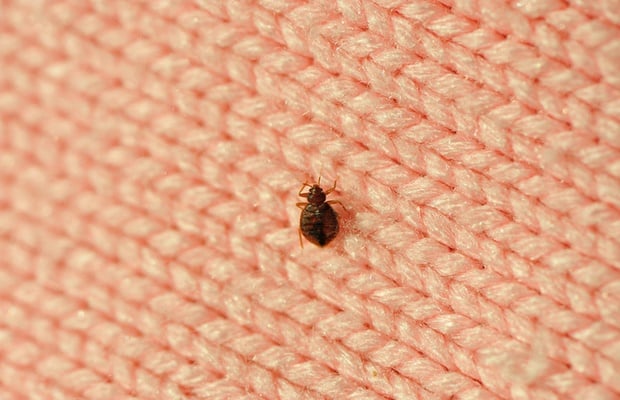Health24.com | The dangers lurking in bedbug poo that can make you sick
Long after you’ve rid your home of unwelcome bedbugs, chemicals they leave behind in their droppings may continue to haunt you, a new study shows.
In people, the immune system releases histamines to protect the body. These chemicals help other immune system chemicals to repair damaged cells or fight off germs.
But histamines shed by bedbugs can cause rashes and trigger respiratory problems in humans, researchers from North Carolina State University found.
The findings were published online in the journal PLoS ONE.
High histamine levels
Bedbugs leave high levels of histamine in their droppings, the study authors explained. For these pests, histamines serve as a marker to help them congregate in places where they can find sleeping people or food.
“Histamine levels in bedbug-infested homes were at least 20 times higher than histamine levels in homes without bedbugs,” said study leader Zachary DeVries, a postdoctoral researcher at North Carolina State.
“And these levels didn’t decrease much three months after treating the infested homes with heat and insecticides,” DeVries added in a university news release.
What the study entailed
For the study, the scientists examined specific apartments in a complex located in Raleigh, North Carolina. They looked for signs of bedbugs and collected dust from both contaminated apartments and apartments with no evidence of infestation.
The investigators found the apartments with bedbugs had dust with much higher histamine levels than the dust from the apartments that didn’t have bedbugs.
After monitoring histamine levels over time, the apartments treated professionally for bedbug infestation still had persistently high histamine levels three months later.

Ways to control histamine levels
The researchers plan to continue to explore the best ways to lower bedbug histamine levels.
“A combination of heat treatment to eradicate bedbugs and rigorous cleaning to eliminate some of the household dust could be a way to reduce these histamine levels; we’ll do future testing to bear that out,” DeVries said.
“We’ll also further investigate the effects of histamine in an indoor environment, including chronic exposure to histamine at low levels,” he added.
Rid your room of bedbugs
A previous article on Health24 gives the following tips on how to prevent bedbugs.
- If you purchase second-hand clothing, keep it sealed in a plastic bag until you wash it in hot water. Then put it in the dryer at high heat.
- If you acquire used furniture, paint or seal it before using it. The bugs are tiny enough to hide in screw holes.
- If you discover bedbugs in your home, spray insecticide and vacuum bedding and furniture thoroughly and place the vacuum bag outside in the trash. Keep doing this daily and “check for tiny brown bugs or pieces that may be part of the bug,” he advised.
- When you travel, check the mattress. “If you see tiny brown specks, move yourself and your clothing and luggage out immediately,” he stated. Inform the hotel manager or your hosts.
- If you are bitten by bedbugs, wash the area with soap and water and dry thoroughly. Apply anti-itch cream to prevent irritation and limit scratching. See a doctor if a bite becomes warm to the touch, swells or hurts.
Image credit: iStock
